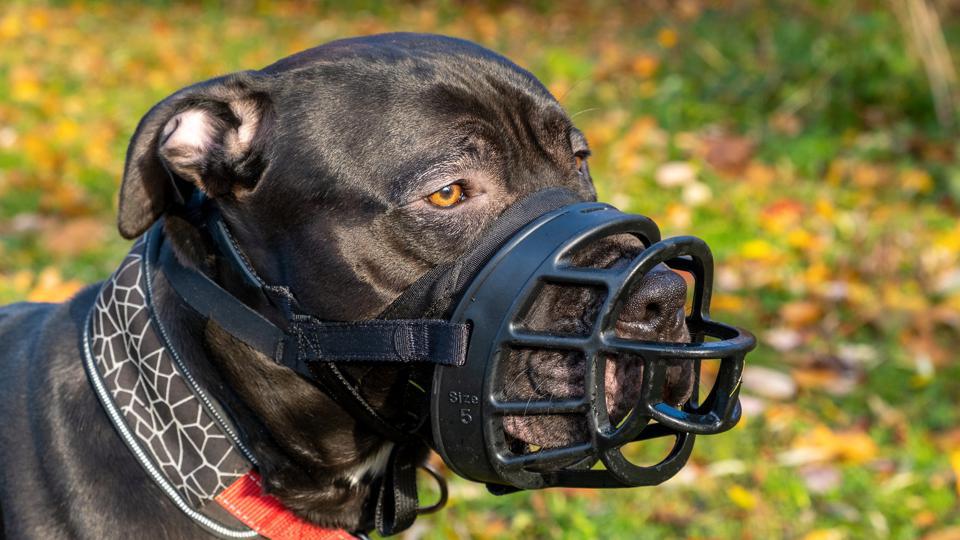Dog bites and attacks can cause severe injuries and trauma. If you or a loved one has been bitten or attacked by a dangerous dog in Illinois, it’s important to understand your rights under state law.
Unlike some other states that follow a one bite rule, Illinois does not require proof that a dog has previously bitten for victims to recover compensation after an attack. So, if you’ve been bitten, here’s what to know to recover compensation.
What Makes a Dog “Dangerous” or “Vicious” in Illinois?
Illinois law outlines two levels of classifications for dogs that have exhibited aggressive behavior:
- Dangerous dog: A dog that, without justification, attacks a person and causes injury but does not cause serious physical injury.
- Vicious dog: A dog that has been found to be “dangerous” three times OR that attacks and causes severe injury or death to a person without justification.
These designations are important because they determine the responsibilities of owners and the options available to victims.
Some key differences:
- A “vicious” finding brings stricter confinement rules for owners and increases their liability.
- Victims have more legal options if a dog is deemed “vicious.”
- The process for appealing a “vicious” classification is more complex.
In short, the “vicious” label puts greater accountability on owners of dogs that have demonstrated repeated aggression.
Confinement Rules and Requirements for Owners
Owners of dogs declared “vicious” in Illinois must follow strict protocols to keep their pets secured and the public protected.
- Enclosures: Vicious dogs must be confined in a locked enclosure with warning signs posted at entrances. The enclosure must have a concrete floor, a secure top, and sides embedded at least 2 feet into the ground.
- Muzzling and leashing: When outside the enclosure, vicious dogs must wear a muzzle and be restrained by a leash no longer than 6 feet. The person in control of the leash must be at least 21 years old.
- Registration and ID: Owners must register vicious dogs with local authorities and have them permanently identified with a tattoo or microchip.
Failure to follow these confinement rules can result in fines and penalties for owners, up to and including having the dog impounded or euthanized.
Options for Victims After a Dog Attack
Illinois has strong laws holding dog owners accountable when their pets injure people. This includes options for victims seeking compensation:
- Strict liability: Owners are liable for injuries caused by dog bites or attacks. Victims do not have to prove the owner knew the dog was dangerous. This “strict liability” standard makes it easier to hold negligent owners responsible.
- Medical expenses: Victims can recover compensation for medical bills, hospitalization, surgery, medications, and more resulting from a dog bite.
- Lost income: If injuries prevent you from working, you may recover wages lost during recovery.
- Pain and suffering: Compensation is available for physical pain, disfigurement, permanent disability or loss of limb, mental trauma, and diminished quality of life.
- Wrongful death: Families of a deceased victim may file a lawsuit for compensation related to funeral costs, loss of companionship, and other damages.
An experienced dog bite lawyer can help victims pursue maximum compensation through negotiations or litigation.
What Factors Contribute to Dog Attacks?
While some dogs are bred to be aggressive, many factors influence a dog’s behavior and risk of biting:
- Lack of training and socialization: Dogs deprived of positive human interaction and obedience training are more likely to be fearful and reactive.
- Abuse and neglect: Mistreatment and adverse living conditions often lead to aggressive tendencies in dogs.
- Protecting territory: Dogs are protective by nature and may bite when feeling threatened.
- Pain or injury: Dogs experiencing discomfort or trauma sometimes bite out of fear.
- Predatory instinct: Some dogs have a high prey drive and may bite during play or prey activities.
- Defending resources: Dogs may show aggression and bite when defending food, toys, or other resources.
- Illness: Rabies and other illnesses affecting brain function can prompt unprovoked attacks.
- Genetics: In order to display aggression, some breeds have been selectively bred. But there is also a role to be played by nurture.
Understanding these factors helps prevent bites through proper training, confinement, supervision, and care.
Recent Changes to Illinois Dangerous Dog Laws
In recent years, Illinois has enacted legislative changes to better protect the public from dangerous dogs. Key updates include:
- Tougher penalties for owners of dogs that attack persons or domestic animals
- Increased homeowner insurance liability for dog bites
- Allowing impoundment of dogs causing bodily harm pending hearings
- Provisions for protecting pets in domestic violence situations
These measures hold negligent owners more accountable and aim to reduce serious and fatal dog attacks.
Contact an Illinois Dog Bite Lawyer Today
Dealing with the aftermath of a dog bite or attack is challenging enough without having to navigate the complex legal system. An experienced attorney can handle the details so you can focus on healing.
At Onward Injury Law, their dedicated team guides victims through every step of the claims process. They’ll deal directly with insurance companies, thoroughly investigate your case, and fight relentlessly to help you recover maximum compensation.
If a dangerous dog in Illinois has harmed you or someone you love, don’t go it alone. Vist their website at https://onwardinjurylaw.com/ to schedule a free consultation today.





